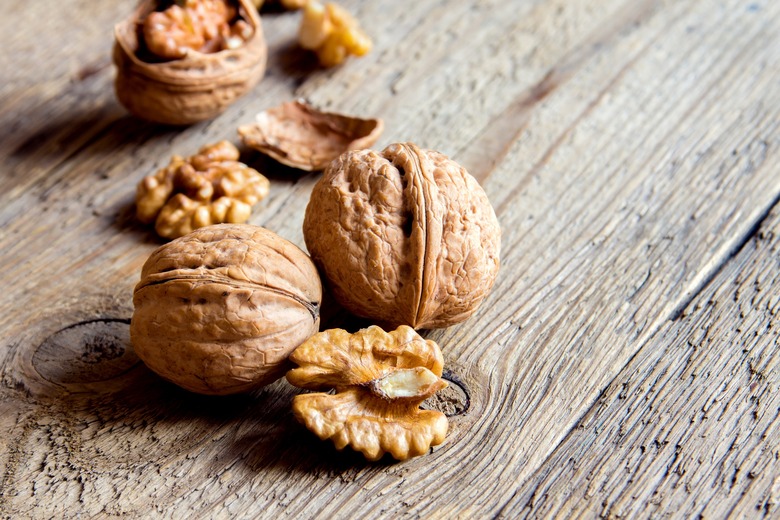Walnuts Could Steer You Away From Junk Food
In a recent study, walnuts were hailed as a solution to diet-wrecking snack attacks when a small group reported less intense desires for crave-worthy foods after eating the healthy nuts. Cakes, onion rings, and other high-calorie, high-fat foods didn't faze these study participants compared to the lusty control group's wide-eyed cravings. Could walnuts infiltrate our minds and coerce us to crave healthier food?
The study featured two groups from a pool of nine participants: One group drank smoothies infused with walnuts and the other drank smoothies without them. The group that drank the walnut smoothies reported less hunger than the other group, evidently having drunk a more satiating smoothie.
As an additional test, the researchers showed both groups flashes of tempting (and not-so-tempting) food porn — photos of fatty, fried indulgences and snapshots of leafy, fibrous veggies. They also, in an attempt to muddy the waters a bit, showed pictures of items that weren't food at all: Rivers, flowers, and trees were a few of their odd selections.
When shown the treats and sweets, the walnut sipping participants exhibited a particularly active insula — the part of the brain associated with resisting impulses and increasing satiety. The walnuts seemed to be infiltrating their brains to curb their cravings, suppressing urges for junk food from the source.
It's important to mention that the study was funded by the California Walnut Commission, who might have had a significant investment in the appeal of walnuts. It was undisclosed whether the participants without the walnuts were fed another nut or simply no nuts at all.
If they were comparing consumption of walnuts to no nuts at all, this result shouldn't really come as much of a surprise — and while some journalists have arrived at some far-fetched conclusions, we doubt it's the nut's mind-control capabilities that are responsible. If you drink a smoothie without any fats, it's not exactly news that you'll be hungry ten minutes later.
Additionally, the investigation of cravings makes sense from this angle. When your body is deprived of fats, it's more likely to crave them. Cravings are usually symptomatic of your body's needs. For instance, late-night snack cravings often result from a lower-than-usual fat intake during the day. So when the control group's smoothie sippers saw sweets, of course they craved the buttery, creamy delights — they didn't consume any healthy fats with breakfast.
Perhaps from this study, the takeaway should be to incorporate healthy fats into every smoothie and every meal in your day — that is, unless you want to crave fatty food later.
